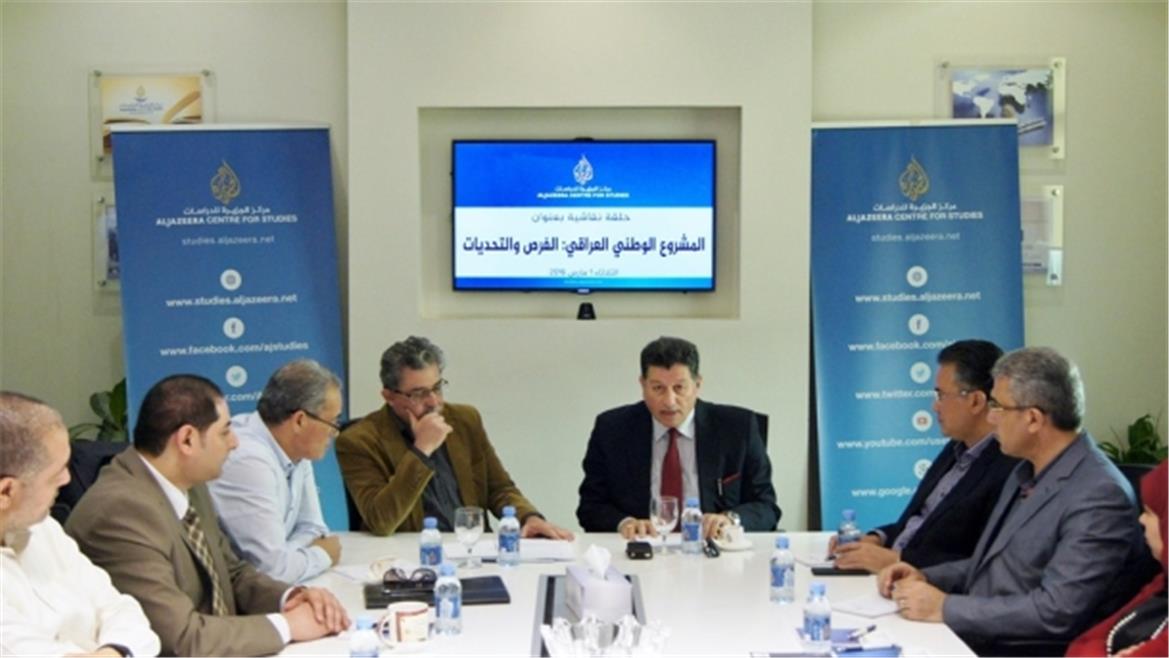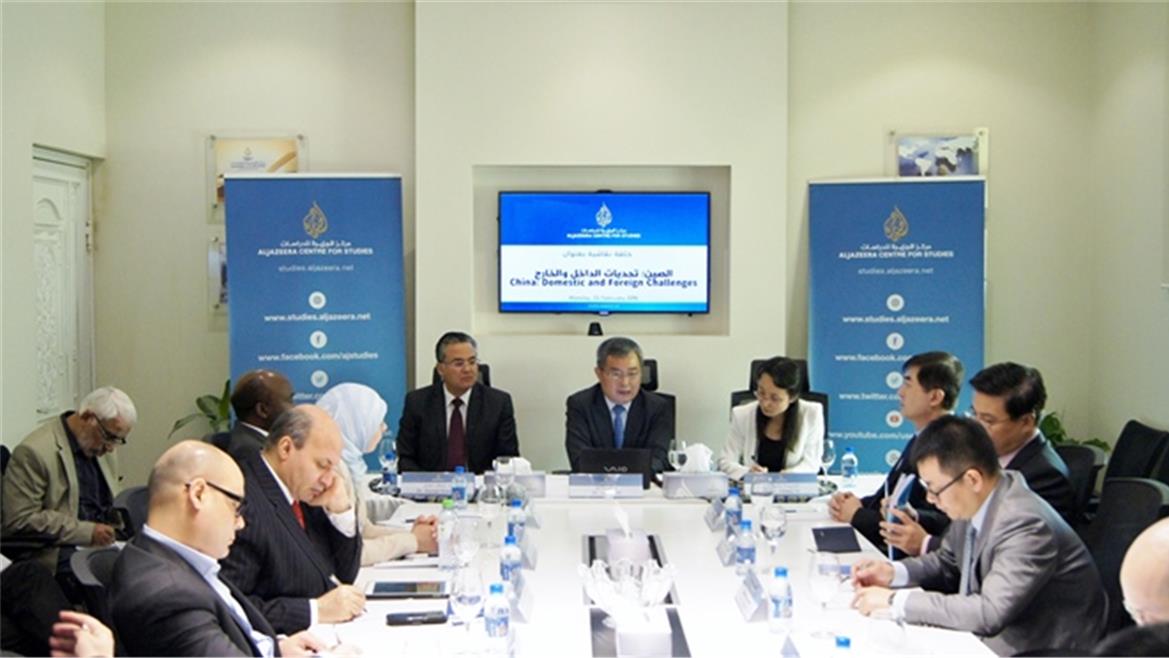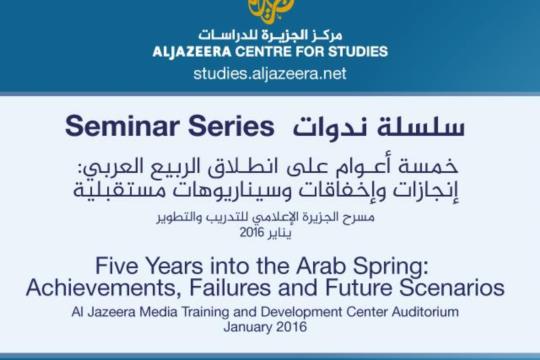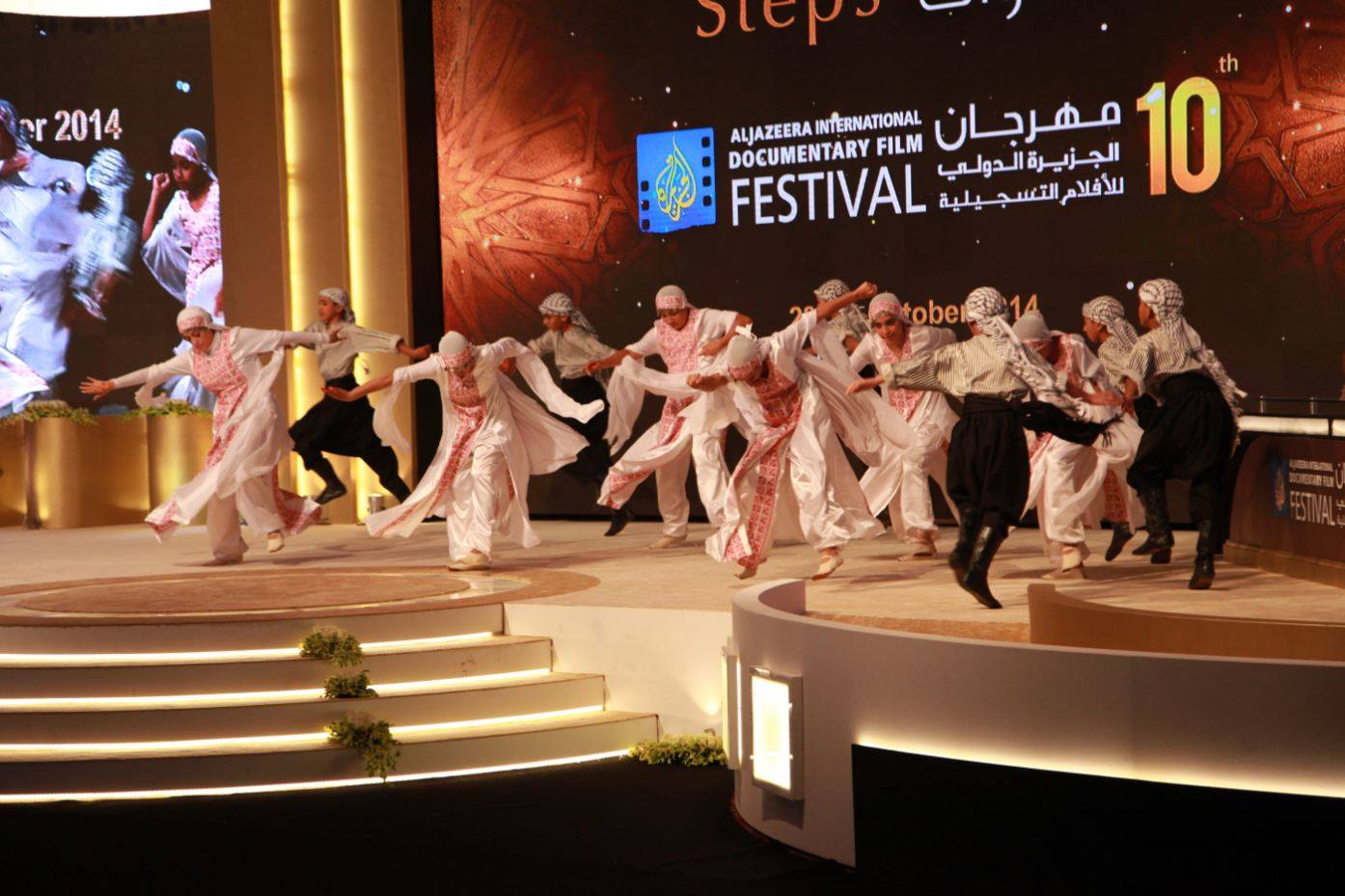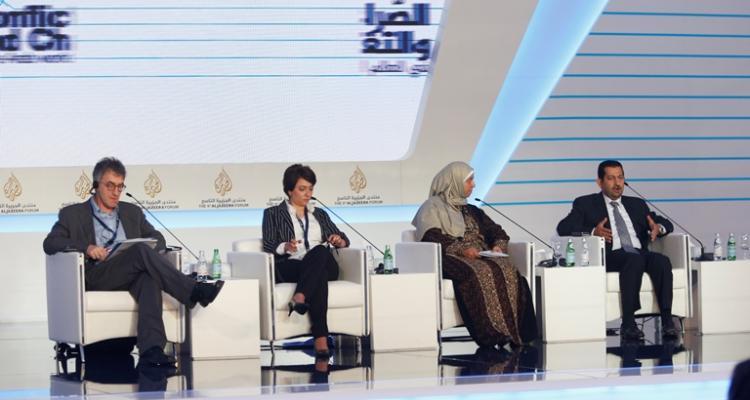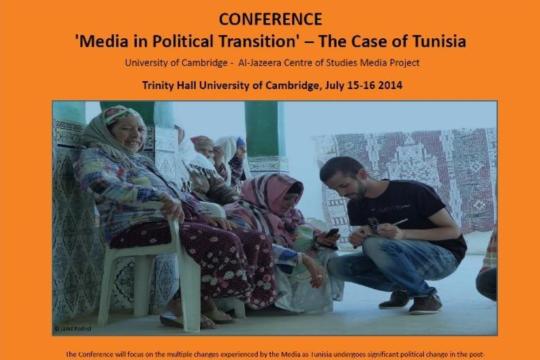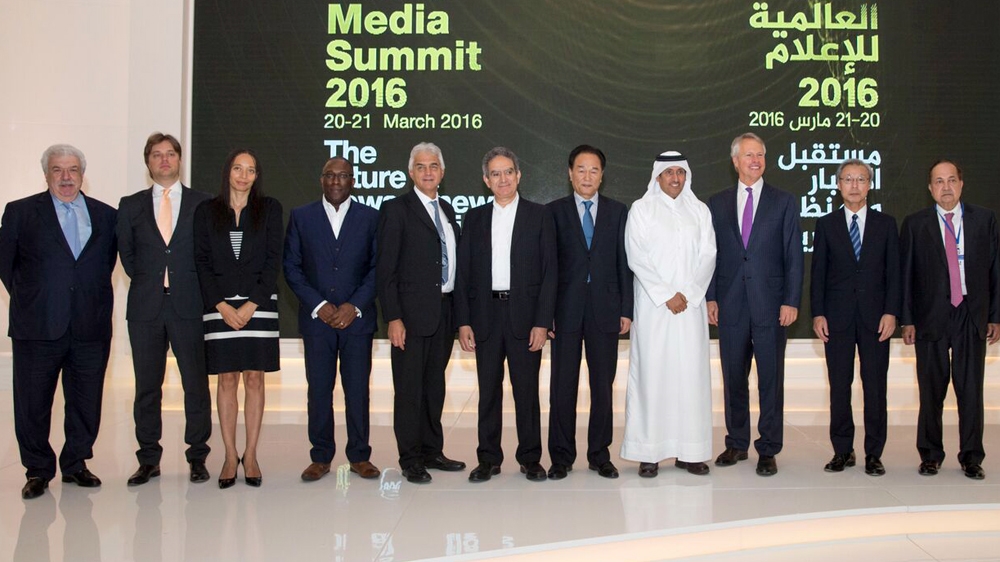
World Media Summit
Doha, Qatar - Faced with shrinking budgets, greater competition and increasingly selective audiences, leaders of international media organisations have vowed to share ideas about how best to gather and present news.
Speaking on Sunday at the World Media Summit - a China-led forum of some of the world's biggest media organisations - several leading figures said they were discovering new ways to attract audiences to current affairs, including investing in technology and innovation.
"We are 20 years into the digital revolution of the media," Gary Pruitt, president of the Associated Press news agency, told a gathering in Doha of about 300 journalists from across the world.
"Demand for news will only grow from here, but the supply of news will also grow. Much of it will not be of very high quality."
He said that "a key component to innovation at AP is to increase work and investment into media and technology start-ups", adding that the agency has tested drones for news-gathering purposes, and has used "robot journalism" to produce reports without human intervention.
But on the future of news, he said: "We can't do it alone any more ... we do need to collaborate."
Meanwhile, Cai Mingzhao, president of the Xinhua News Agency, said that in China, "mobile internet has become a primary source for people to consume information".
He added that, with more choices of where to source news, readers are becoming more selective.
"Subscribers have become pickier when faced with the breadth of information online … News organisations, therefore, need to improve quality and tailor content," he said, before adding that the "majority of content on the web is still provided by professional news organisations".
'Social' journalism
Though several speakers commented on the challenges of retaining readership, there was broad consensus that journalism with a social purpose should remain a priority, regardless of the changing landscape.
Cai pointed to a six-month investigation by Xinhua reporters that focused on poverty in remote areas that led to changes in government policy.
AP's Pruitt cited "one of the most important stories" the agency has ever produced; an investigation that revealed that supermarkets were selling shrimp peeled by trafficked fishermen in Thailand. The report later led to the labourers' freedom.
Narasimhan Ram, publisher of India's The Hindu newspaper, said that "a good newspaper is a forum for comment, debate, controversy, reflection - it should be 'a nation talking to itself'.
"If you do this well, you can do agenda building, not agenda setting."
He added: "We stand for news media that is free, that has the right to be bold, to explore, to investigate."
Journalists killed
Elsewhere during the event, calls were raised for the protection of journalists, especially amid armed conflicts in the Middle East.
Guy Berger, the director for freedom of expression and media development at UNESCO, said that since 2006, more than 800 journalists had been killed across the world.
Emphasising the need for a multi-stakeholder approach to journalist safety, he said: "No single actor can solve this issue [protecting journalists] alone … it needs combined action."
In the past four years, eight resolutions have been passed on the safety of journalists, Berger said. "The UN family is increasingly seized by the issue of journalist safety."
The World Media Summit was founded in Beijing in 2008, and held its first forum there in 2009. The second meeting was held in Moscow in 2012.
The event in Doha, which is hosted by the Al Jazeera Media Network, concludes on Monday.
